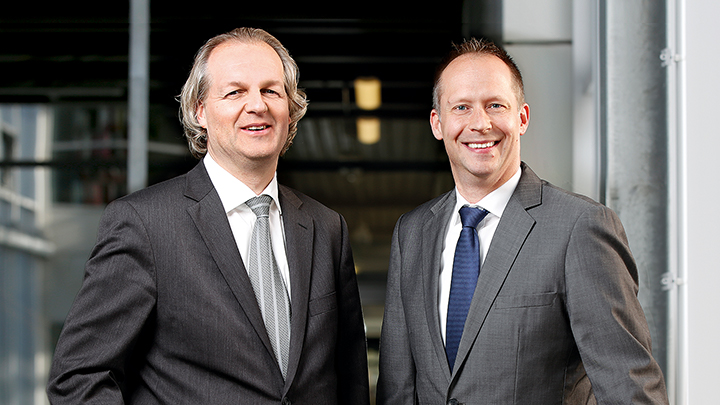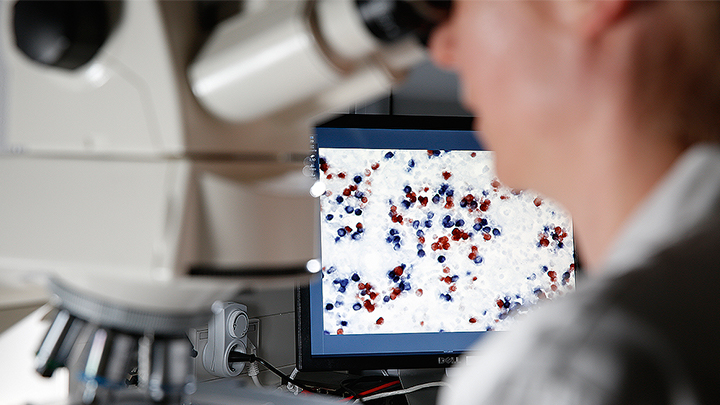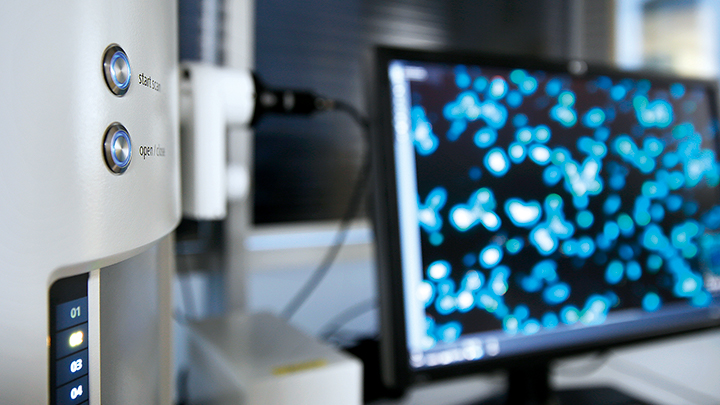PARTNER PROFILE: ZYTOVISION GMBH – HELPING AGAINST CANCER >> From Bremerhaven to the United Arab Emirates: their special products for tumour diagnosis are used worldwide
Does a cancer diagnosis automatically mean chemotherapy? No, because modern medicine is based more on treatments that work in a targeted way rather than affecting the entire organism. To do this, however, doctors must be able to characterise the tumour precisely. ZytoVision GmbH, located in the fishing port of Bremerhaven, helps to do just this. Its experts develop and produce special products for tumour diagnosis. “We have over 300 products in our portfolio. They enable DNA elements and sequences in cancer cells to be made visible. This is the only way to determine the tumour precisely – which provides the basis for individual courses of treatment,” explains managing director Dr Pierre Marggraf-Rogalla. He founded the company in 2004 with his business partner, Dr Sven Hauke.
The two molecular biologists met at the University of Bremen. Working at the Centre for Human Genetics, they were at that time already doing research to find out which genes in tumours are frequently affected by mutations and in which part of the chromosome. During this time, the two scientists often cooperated with pathologists, who encouraged them to use their abilities and competences for business purposes, too. This was a challenge, since the market was largely controlled by the big pharmaceutical companies, and the biotechnology bubble in Germany had burst. The two scientists therefore looked for a niche to start in and focused on markers for rare breast and lung cancer tumours. Some cancer cells can produce what are known as tumour markers. These biological substances occur in tissues, but can also get into the blood and can be typical of the respective cancer. Healthy people can also carry these markers in them, but not in such large quantities as cancer patients. These differences can therefore be used for examination. ZytoVision products are primarily used to detect deviations in the chromosomes of genes relevant to tumour diagnosis, such as HER2 in breast tumours, ALK-EML4 in lung tumours, and BCR-ABL in leukaemia. The company specialises in probes for in-situ hybridisation. This enables chromosomal modifications of tumour cells to be made visible, for example.
Pierre Marggraf-Rogalla and Sven Hauke’s idea proved to be a winner: in 2006, ZytoVision won the Founder’s Prize awarded by the Sparkasse Bremerhaven bank, and in 2008, its affiliated company 42 Life Sciences was founded. The molecular biologists now employ 70 employees in the two companies located in the fishing port, and their products are used all over the world – in Germany, in a large number of other EU countries, but also in Asia and the United Arab Emirates, for example. “Our distribution structure is very internationally oriented and necessitates a competent partner who can provide us with secure packaging materials for high-quality, temperature-sensitive transportation. When our diagnostic preparations are shipped, controlled temperature conditions and the maintenance of the cold chain must be absolutely guaranteed. That’s why ECOCOOL is the perfect partner for us. It’s not for nothing that we have been working together successfully for many years,” says Pierre Marggraf-Rogalla in summary.
back to overviewT. (0471) 98 69 2-000
info@ecocool.de



